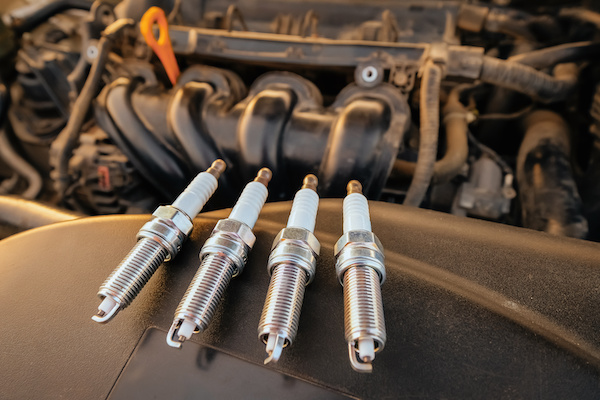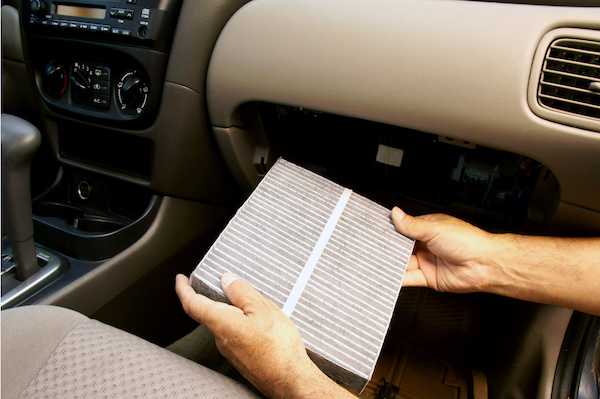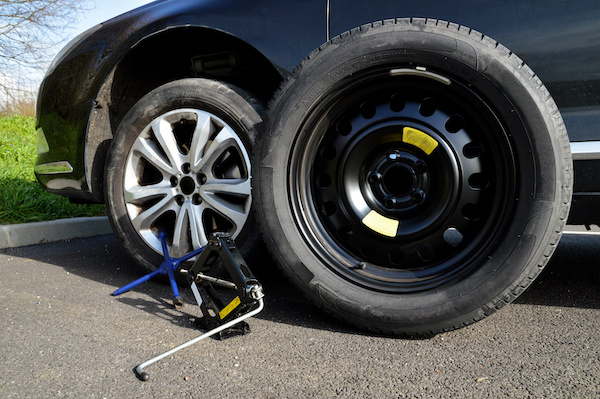Posted on 5/26/2022

Spark plugs play a vital role in your car's combustion engine. Faulty spark plugs will result in poor combustion and eventually faster drains gas from your tank. When spark plugs malfunction, you might not ignite your vehicle because they'll fail to generate the necessary spark that helps move the engine's piston. Therefore, you must change them frequently to avoid such annoying malfunctions. Changing your spark plug will be determined by a lot of factors. If you feel that your ignition is not instantaneous as expected, you need to replace them. The interval of change of spark plugs varies depending on the specific vehicles. Checking the vehicle's manual will help recommend the particular interval of changing your car's spark plugs. However, 30, 000 miles is the recommended average mileage for a spark plug change. Failure to replace your car's spark plugs in time is a prerequisite for engine malfunctions. Issues like misfiring and abnormal idling will occur owi ... read more
Posted on 4/27/2022
.jpeg)
It's exciting when you drive the car off without difficulty, but this can quickly turn scary when the car won't start again. If you're wondering why your car won't start, we've got some of the most common causes: Dead Battery The first item to check if your car won't start is the battery. Maybe something depleted the car's battery overnight, or it's simply old. Over time, car batteries weaken and fail. Batteries may be drained due to aging, improper wire connections or accessories left on. Corroded or Loose Battery Terminals Even if the battery isn't dead, it may be having issues. Inspect the connections for loosened or rusted parts. The terminal clamps should be tight. Corrosion might impair the connection. Cleaning the terminals with baking soda and water is straightforward hack. Dead Alternator A defective alternator might also cause the car not to start. The alternator charges the battery while the car is running. When it fails, the battery ... read more
Posted on 3/28/2022

The heat of the summer months along with increased traffic on the roads will ultimately cause some wear on your vehicle. Regular maintenance during the summer months is essential to ensure your safety and to avoid breakdowns. Here are some preventative maintenance items to follow before and during the summer months: Air Conditioning - Make sure that your air conditioning is working well before you get hit with that summer heat. A quick inspection of your A/C system will help make sure all is working properly as well as a top-off of coolant. Cooling System - Overheating is the number one cause of breakdowns during the summer, due to a combination of engine heat and environmental heat. The cooling system is what cools down your engine as you drive and is vital for summer months. The cooling system fluid should be exchanged every 24 months. Oil Change - As always, it is important to stay on top of oil changes at the recommended intervals. Low or dirty oil can cause en ... read more
Posted on 2/28/2022

With gas prices rising high these days, you may want to take the initiative to save money with your fleet. There are several ways you can reduce your fleets' fuel consumption. Measure how economically your drivers are driving - First and foremost, you should find a way to measure how efficient or inefficient your vehicles are so that you know which cars need improvement. Some vehicles have specific software that gives you this insightful info. Otherwise, you can invest in a system that measures it. Reward economical drivers - By rewarding your best drivers, you can encourage them to drive better. Throwing in some friendly competition will make your drivers more cautious of their driving style and habits. Perhaps, there will be less excessive harsh accelerations, braking, and sharp turning. Plan your trips smarter - Optimizing your routes is the best way to save on fuel expenses. Changing the order of stops can save tens or hundreds of miles each day. Invest in new cars ... read more
Posted on 1/19/2022

If you're not an automotive technician, you have probably never heard of or cared for your vehicle's cabin filter. But the fact is, all cars have one. Cabin filters purify air by removing smoke, dust, allergens, and much more. Over time, the filter can get dirty and clogged, becoming ineffective. This is why mechanics stress the importance of changing your filters on time, and the cabin air filter is no exception. What happens if you don't replace cabin air filters? It can be considered dangerous if the cabin filter isn't changed on time. Here's what could happen if you leave a dirty filter in your car too long: Health Issues The cabin filter makes sure the air that comes out of your vents is safe to breathe. When the filter gets filthy, that's when breathing can become an issue. The cabin air filter is something individuals with asthma, or other health issues should be especially concerned about. Foggy Windows The cabin air filter helps minimize the ... read more
Posted on 12/18/2021

Oil changes are the most frequent maintenance items for most car owners. While these visits to the auto repair shop may be quick, the consequences of neglecting a needed one can be devastating for your car's health and your wallet. Here are some ways to determine if your vehicle needs an oil change soon: Number of Miles You've Driven On average, most cars need an oil change about every 3,000 miles. However, this number can differ depending on your driving habits, your driving frequency, the age of your car, and the type of oil you use. If you drive a more modern vehicle, you might be able to put it off a little longer between each change. It is best to consult with your owner's manual or car experts if you are unsure. Vehicle Notification System The most obvious sign that it is time to get an oil change is if there is a warning light on your dashboard. Assuming that your oil change light is working, waiting for the message to come on will take away some of the flexibili ... read more
Posted on 11/11/2021

Flat tires are sometimes unavoidable, no matter how much you care for your tires. A simple nail can do the trick. As you try to calm yourself and pop the trunk open to reach for the spare, you may notice that it is much smaller than your regular tires. Most vehicles come with fairly thin, fragile spares, and they're sometimes referred to as a 'donut.' This may have you wondering, "why". The first reason why the spare tires are smaller is to maximize trunk space. Donut tires have a shallow tread with a narrow width. The material for the spare is also lighter, making it easier for the average individual to carry and install. If a spare tire were the same size as a regular tire, it would add excess weight to your car. But the primary reason why donut tires are small is that they are just a temporary method. Spares are only supposed to get you to a repair shop safely and last for only about 100 miles. The smaller-sized tires also make ... read more
Posted on 10/7/2021

If you've been a vehicle owner for a while now, you should already know the importance of routine car maintenance. Fall is one of the most vital times of year to complete a check-up of your car. Not only do you need to prep it for the cooler weather, but it needs to recover from the heat of summer. The hot summer in NC/SC wore down your vehicle a lot more than you think, and most of the time, you can't see it with the human eye. You can trust our expert team to properly inspect and diagnose any of the pesky damages early on. A tune-up can give your car, SUV, or truck the refresher it needs and prepare it for what it will face in the fall and winter. We highly recommend you follow this maintenance checklist so that your car can run healthy and safe throughout the season. Check all your tires for treadwear, condition, and air pressure. If you require new tires, Woodie's Auto Service and Repair Centers has a wide selection of tire options to choose fro ... read more
Posted on 9/15/2021
.jpeg)
We are all aware that pulling forward out of a parking spot is always quicker and more convenient than backing out. Depending on the area you live in, angled parking spots may be more common and challenge you to reverse park. However, with more vehicles equipped with modern technology, such as backup cameras and motion sensors, reverse parking should be a piece of cake! Below are some reasons why it's more beneficial to back into parking spaces: Due to technology enabling us to see better and straining our necks, backing into a parking space can be done faster than ever. You can save extra time when leaving the parking lot since you don't have to stress looking for oncoming vehicles, bikers, or pedestrians. If you experience an emergency that requires you to leave fast, reverse parking makes it simpler to jump into your vehicle and go where you need to be. If you are experiencing any mechanical problems with your vehicle, you'll have more access to the hood o ... read more
Posted on 8/27/2021

Problems with car starts are significantly annoying. The worst part is that there are hundreds of reasons why your car may not be starting. Below we've narrowed it down to the five most common causes. Low or Empty Gas Tank If you're an individual who likes to drive until your gas gauge is sitting on empty, that might be the sole reason why your vehicle won't start. While it's inconvenient, low gas is not a difficult problem to fix. Next time, try not to let it happen, especially during the winter. When your car sits outdoors in freezing temperatures, the air in your gas tank could moisten and freeze. Dead Battery A dead battery is usually the culprit for not starting your car, and it's prevalent in the hot summer. Higher temperatures put a heavier strain on your battery so that you may be welcomed with a dead battery in the fall. You'll need to jump-start it for a temporary fix, but you'll probably need to get it to the repair shop ... read more